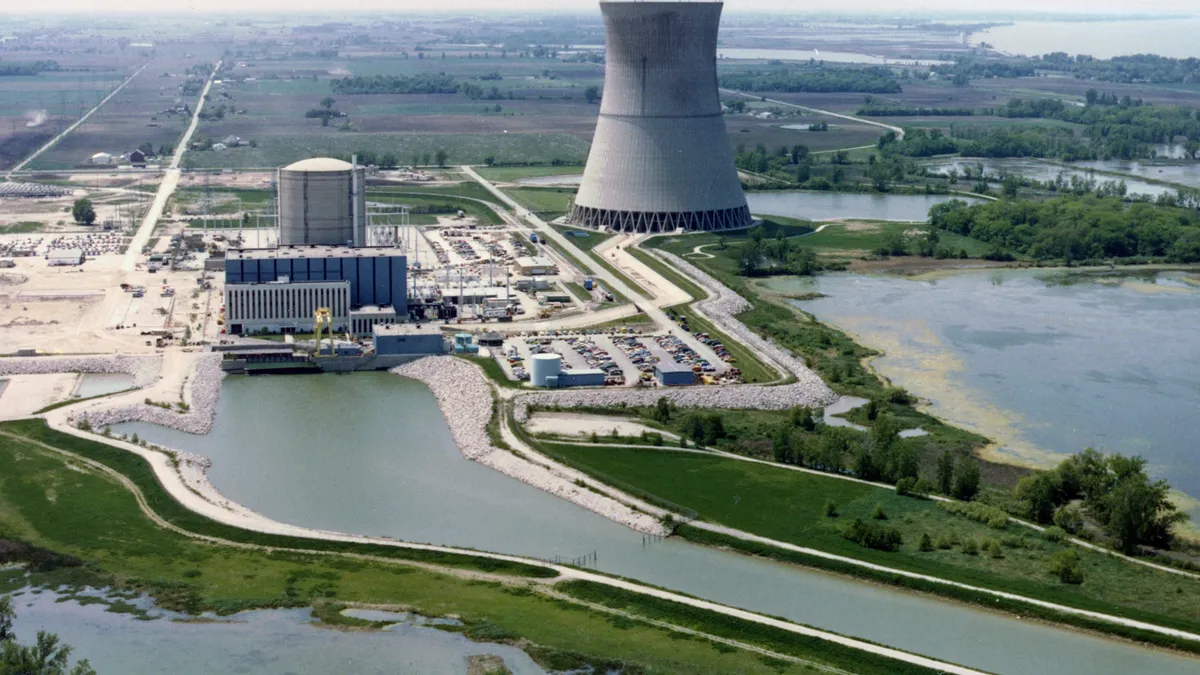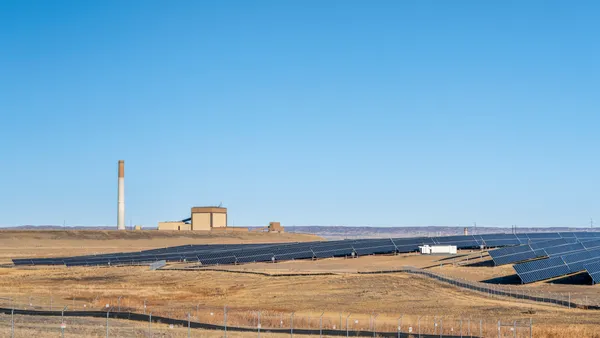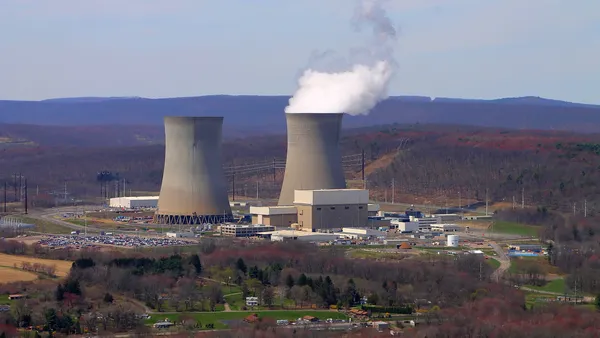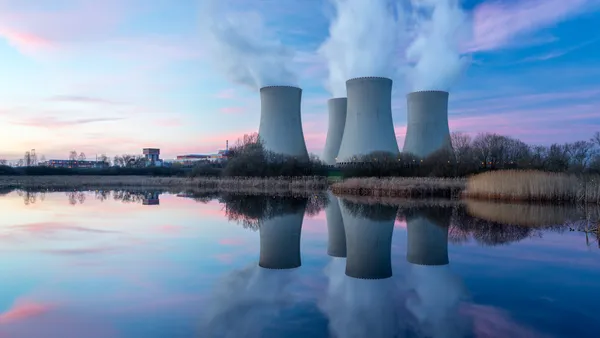Dive Brief:
- FirstEnergy Corp. nuclear plants in Toledo and Perry, Ohio, are not necessary for system reliability, according to Craig Glazer, vice president of federal government policy at PJM Interconnection and the former chairman of the Public Utilities Commission of Ohio.
- Glazer spoke with Crain's Cleveland Business, and said the Davis-Besse and Perry nuclear plants may provide employment or economic development opportunities, but the two plants are not needed to keep the lights on.
- Ohio lawmakers are considering subsidies to keep the two plants running. Last month, FirstEnergy CEO Chuck Jones told the Ohio Senate Public Utilities Committee that the two plants are unlikely to successfully compete with low cost gas-fired generation in the wholesale power market.
Dive Insight:
Glazer told Crain's that there may be reasons to save Ohio's nuclear fleets, but reliability isn't one of them.
“The lights aren’t going to go out,” he said last week. “There’s not a reliability problem. If you want to save them because of their jobs, because of economic development reasons or for tax revenue, that’s outside of our bailiwick."
Ohio lawmakers are considering legislation create a Zero Emission Nuclear Resource (ZEN) program to keep the plants running. While debate on the measure has been suspended for now, there may be a better chance for passage this fall. But FirstEnergy officials say that may not be soon enough.
"Is the fall soon enough? I don't know," Jones said last month. "We are working through a lot of issues right now that are going to determine the future of our company and the future of our ownership of competitive generation."
Ohio is not the first state where policymakers have faced this issue. New York and Illinois have zero energy credit programs in place to keep nuclear plants running — though both efforts are being contested — and similar programs are under consideration in Pennsylvania, Connecticut and New Jersey.
Critics say the nuclear credits intrude into federal wholesale markets and are challenging them in court and at the Federal Energy Regulatory Commission. The regulators recently addressed the issue in a May technical conference, but any nation- or market-wide reforms are likely to take years to put into place.
The Department of Energy is also preparing to weigh in on the debate with a review of baseload power generation due out in July. The Trump administration is concerned state energy policies may be pushing coal and nuclear plants offline and has indicated it could look to preempt such policies if it feels reliability is threatened.
Other grid operators, utilities and lawmakers from each party have discouraged that tactic, however, joining Glazer in arguing reliability is not under threat.
"Save them if you want to save them," Glazer said of the nuclear plants. "But don’t think you’re saving them because that’s what’s necessary to keep the lights on.”














